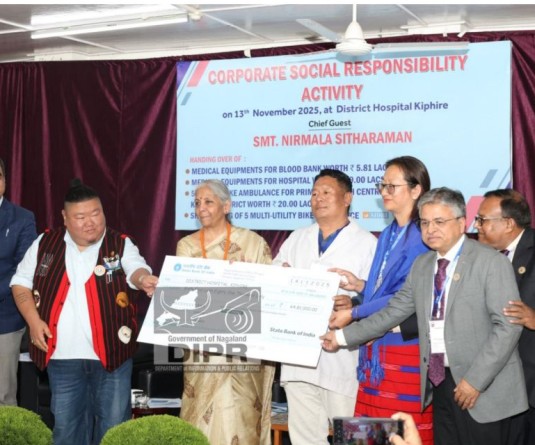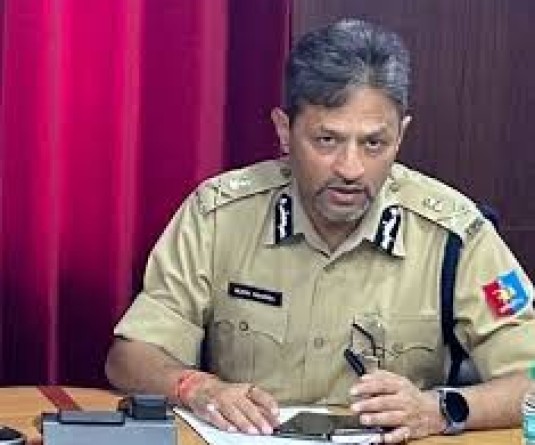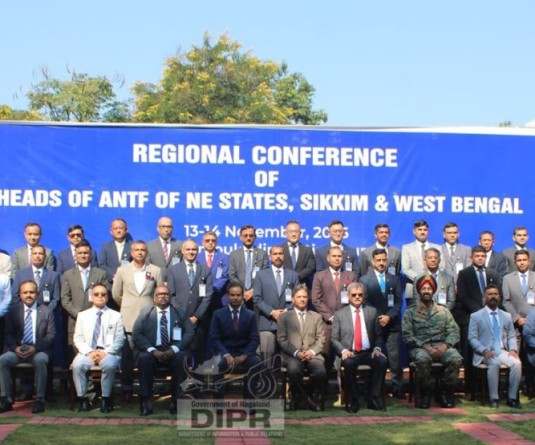
Morung Express News
Kohima | March 29
A training module on HIV & AIDS for law enforcement agencies and faith based organisations was launched on March 28 by Chief Secretary, Temjen Toy at Hotel Japfu, Kohima. The training modules have been prepared to empower the Police and Church workers in collective response to HIV & AIDS and ensure the universal access and protection of human rights, and further eliminate stigma and discrimination.
The approach towards HIV & AIDS was very different than what it is now, said Chief Secretary, Temjen Toy, who however pointed out that the issues remain the same, despite the change in focus and appearance of new challenges. A positive approach has been the attitude of the Church, he observed.
Drawing experiences from 15 years ago, Temjen Toy mentioned that the concentration was put on high-risk groups then, where targeted interventions were developed. However Toy stated that today the focus needs to be on vulnerable groups. “Today people are aware but people are not careful, behavioural changes have not taken place, habits have not changed,” he observed, while urging people working on the issue to not just sensitize the vulnerable groups but prepare them on behavioural changes. “HIV & AIDS is still a major challenge,” he concluded.
NSACS Project Director, Dr Ngangshimeren meanwhile viewed that the success of prevention of HIV & AIDS depends on the level of knowledge, skills and attitude of implementers.
According to Nagaland DGP Rupin Sharma, the Nagaland Police constitutes about 25 percent of Nagaland state’s employees, while the families of the Nagaland Police consist of about 20 to 25 percent of the entire population of the state. Therefore, the focus in training the police community becomes essential, he stated, while pointing out that the police has crucial roles to play in tackling HIV & AIDS. An important role is to act as facilitators where they can spread the awareness vis-a-vis their families as well as society, he said.
Sharma further reminded that the Police are duty bound to protect those suffering from HIV & AIDS from discrimination. Although awareness has increased in Naga society causing stigmatization and discrimination to go down, Sharma viewed that in certain quarters, people suffering from AIDS are still discriminated. “We do not treat a diabetes patient or cancer patient in the same manner as an AIDS patient,” he observed.
Towards tackling the HIV & AIDS issue, Sharma stressed on the need to concentrate more on the Nagaland Police and the Education Department “which put together are the nucleus of Naga society.” He said basic structure and lessons in schools can be set up. Sharma also shared the suggestion to undertake a study on which groups of people in general are more susceptible to HIV & AIDS. He also suggested examining which areas and cantonments of security personnel show high HIV & AIDS prevalence; and whether any such pattern exists in Nagaland.
“Greater synergy, appropriate knowledge and skills, trained manpower and consistent partnership can increase and improve access to HIV prevention and treatment services,” said Abou Mere, Director, Kripa Foundation, Nagaland who expressed confidence that the training module would be of immense help to law enforcement agencies and church organisations in understanding the AIDS epidemic and develop an appropriate response in tackling its challenges.
‘The role of the church is also to humanize’
Speaking during the launching of the training modules, Rev. Dr. Mechiehol Savi reminded that the church as a community of believers cannot detach itself from the community. “We must always commit ourselves to address the issues that we face and wrestle with at every turn of our civilization. Our struggle to contain HIV/AIDS in our century is no different,” he said.
Savi noted that for a long time, the Church has viewed HIV & AIDS as the malady for God’s judgement upon man’s sins, thereby detaching itself from addressing the issue. However, of late, he opined that the church has taken the responsibility to educate the people in different ways. “This, the church is committed to continue as part of her holistic ministry. We cannot be complacent and together we must continue to address the issue creatively,” he said.
Savi said the role of the Church is not only proclamation of spiritual salvation but also humanization. He remarked that to humanise the people “we need to participate in the revolution of our time through constructive participation, prophetic criticism and righteous reconciliation.”






